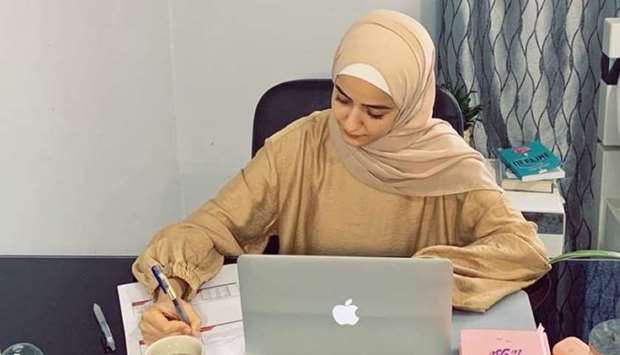Qatar University’s College of Pharmacy (QU-CPH) switched its Doctor of Pharmacy (PharmD) student’s clinical placement to virtual rotations due to suspension of classes to prevent Covid-19.
Online delivery of QU-CPH didactic courses was easily implemented overnight due to the current situation. The PharmD programme, which is heavily comprised of internships, requires students to complete 24-weeks of direct patient care prior to graduation. Since this requirement was fulfilled by the PharmD students prior to the Covid-19 pandemic, the decision to transition the two remaining internships into a virtual based experience was practical.
Each PharmD student was reassigned to a cross-appointed faculty to deliver an online experience based on their area of expertise. A few examples of virtual rotations offered by the programme were pharmacy academia, pharmacy research, internal medicine, and mental health. The programme has already completed one round of successful virtual internships and is currently in the process of delivering its last online experience.
As the graduation approaches, Dr Bridget Javed, director of PharmD programme said, “The PharmD students are ready to enter practice. At this point of their academic careers and despite the transition to virtual learning, I am confident the students have met the educational outcomes as the program has built in many checkpoints throughout the year to assess their competency levels. With that being said, the transition to virtual internships would not have been feasible without the support of our dedicated cross-appointed faculty and positive mindset of our students.”
CPH clinical lecturer and cross-appointed faculty preceptor, Dr Daniel Rainkie said, “While face-to-face patient care is the crux of pharmacy practice and inter-professional collaboration, the Covid-19 situation also presents us an opportunity to identify how pharmacists can continue to provide care through telehealth services. Through this distance learning rotation, we were able to research complex controversial clinical questions and provide that knowledge translation service to the care providers involved in direct patient care.”
“Moving experiential clinical rotations to the virtual setting is not easy, however it was accomplished. The key is making the best out of the situation and changing your goals and expectations. Online learning allowed me to read more literature and dive deeper into various disease states and simulated patient cases to further enrich my knowledge and understanding as a medication expert” said, Bodoor Aboujabal, PharmD student at QU. -
Each PharmD student was reassigned to a cross-appointed faculty to deliver an online experience based on their area of expertise. A few examples of virtual rotations offered by the programme were pharmacy academia, pharmacy research, internal medicine, and mental health. The programme has already completed one round of successful virtual internships and is currently in the process of delivering its last online experience.
As the graduation approaches, Dr Bridget Javed, director of PharmD programme said, “The PharmD students are ready to enter practice. At this point of their academic careers and despite the transition to virtual learning, I am confident the students have met the educational outcomes as the program has built in many checkpoints throughout the year to assess their competency levels. With that being said, the transition to virtual internships would not have been feasible without the support of our dedicated cross-appointed faculty and positive mindset of our students.”
CPH clinical lecturer and cross-appointed faculty preceptor, Dr Daniel Rainkie said, “While face-to-face patient care is the crux of pharmacy practice and inter-professional collaboration, the Covid-19 situation also presents us an opportunity to identify how pharmacists can continue to provide care through telehealth services. Through this distance learning rotation, we were able to research complex controversial clinical questions and provide that knowledge translation service to the care providers involved in direct patient care.”
“Moving experiential clinical rotations to the virtual setting is not easy, however it was accomplished. The key is making the best out of the situation and changing your goals and expectations. Online learning allowed me to read more literature and dive deeper into various disease states and simulated patient cases to further enrich my knowledge and understanding as a medication expert” said, Bodoor Aboujabal, PharmD student at QU. -

